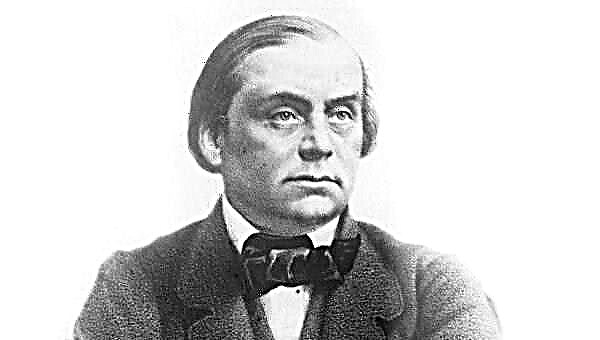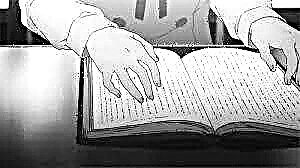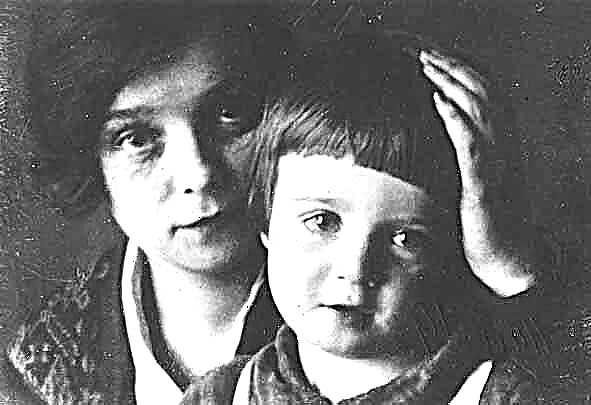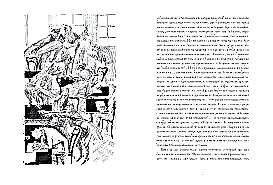Having received an invitation from a well-known Pushkinist Schweitzer to come to Mikhailovskoye, the Leningrad restoration artist Nikolai Genrikhovich Vermel postponed hasty work on the frescoes of the Trinity Church in Novgorod and, together with his partner and student Pakhomov, went to Schweitzer, rummaging through the collections of the Mikhailovsky Museum hoping to find unknown poems documents.
The daughter of the landlady, the actress of the Odessa theater, the beauty who came to visit her daughter and the aging mother were invited to the trip.
Snowy alleys, an old house, an interesting society in Mikhailovsky - Tatyana Andreevna liked everything. It was nice to find admirers of their talent - Odessa students. There was a completely unexpected surprise. Once having entered one of the rooms, Tatyana Andreevna quietly gasped and sank into a chair opposite the portrait of a young beauty. Everyone saw that their companion was completely similar to her. “Carolina Sabanskaya is my great-grandmother,” she explained. The actress's great-grandfather, a certain Chirkov, in the year of his stay in Odessa Pushkin served there in a dragoon regiment. Carolina shone in society, and our poet was in love with her, but she married a dragoon, and they parted. Incidentally, the sister of this desperate adventurer, Countess of Ghana, was Balzac's wife in her second marriage. Tatyana Andreevna recalled that her Kiev uncle kept a portrait of Pushkin.
Schweizer was astounded. He knew that, parting with Sabanskaya, the poet gave her his portrait, which was depicted holding a sheet with some kind of poem dedicated to the charming Polish girl. Pushkinist decided to go to Kiev.
In the Ukrainian capital, he managed to find Uncle Tatyana Andreevna, but, alas, that one of the crisis moments he lost the portrait of Odessa antique dealer Zilber. In Odessa, Schweizer found out that the antique dealer presented the portrait to his nephew, who worked in the Yalta sanatorium for consumptive patients: the portrait had no artistic value.
Before leaving Odessa, Schweizer visited Tatyana Andreevna. She asked to take him with her to Yalta. There, in a tuberculosis sanatorium, the twenty-two-year-old Spaniard Ramon Pereiro died. He arrived in Russia along with other Republicans, but could not stand the climate and became seriously ill. They became friends and often saw each other. Once on a country outing, Ramon suddenly knelt in front of her and said that he loved her. It seemed pompous and inappropriate to her at all (she was ten years older than him, and Masha was already eight years old), she laughed, and he suddenly jumped up and ran away. Tatyana Andreevna all the time reproached herself for this laugh, because for his compatriots theatricality is second nature.
The sanatorium told her that there was no hope, and allowed to stay. In the ward, she knelt down in front of the bed. Ramon recognized her, and tears rolled down his thin, blackened face.
Schweizer, meanwhile, found a portrait in the sanatorium and called Vermel. It was possible to restore only on the spot. However, Pakhomov arrived, begging the teacher to send him. It was obvious to the old man that his Misha in the south had a special interest besides professional. Something he noticed back in Novgorod.
With the help of Pakhomov, he managed to read the verses that Pushkin was holding in his hands. It was the stanza of the poem: “The flying ridge is thinning the clouds ...” This find did not contain sensations, but it was important for Schweitzer to touch the poet’s life. Pakhomov was glad to see Tatyana Andreevna again. He never told her about love, and she was silent too, but in the spring of 1941 she moved to Kronstadt - closer to Novgorod and Leningrad.
The war found her on the island of Ezel, as part of the visiting crew of the Baltic Fleet Theater. With the start of the fighting, the actress became a nurse and was evacuated just before the fall of the heroic island. Further, the path lay on Tikhvin. But the plane was forced to land near Mikhailovsky, in the location of a partisan detachment.
While repairing the broken gas pipeline, Tatyana Andreevna and the escort went to Mikhailovskoye. She did not yet know that Schweitzer remained here to protect the museum values buried by him and the portrait of Sabanskaya hidden separately from them. Tatyana Andreevna found him by accident, not quite healthy mentally. At dawn, the plane carried them to the mainland.
In Leningrad, they found Vermel and Masha: Nikolai Genrikhovich rushed to Novgorod with the outbreak of war. He managed to pack and transport museum valuables to Kostroma, but he himself had to stay with Masha and Varvara Gavrilovna - the mother of Tatyana Andreevna - in Novgorod. The three of them on foot tried to leave the occupied city, but an elderly woman died.
There was no news from Pakhomov since his departure to the army. He went south, worked in a front-line newspaper, and was wounded while repelling a German landing. All yearned for Tatyana Andreevna. His hospital was constantly moving - the front line rolled towards the Volga.
In Leningrad, it became increasingly difficult. Tatyana Andreevna insisted that Vermel, Schweitzer and Masha go to Siberia. She herself had to stay in the theater. She was completely alone, often spent the night in the dressing room, where it was warmer than at home, alone with the portrait of Sabanskaya, which gave rise to the thought that after death she would not have any eyes, eyebrows, or smiles. It’s good that in the old days they painted portraits.
But then one day, pressing her forehead against the window, she saw a man in a greatcoat on a deserted street, with a hand in the band. It was Misha Pakhomov. After breaking the blockade, those who left for evacuation also returned to Leningrad. Life is getting better. Vermel and Pakhomov were eager to restore the destroyed monuments of Peterhof, Novgorod, Pushkin, Pavlovsk, so that after a few years people could not even imagine that fascist hordes had passed through this land.

 The Tale of Peter and Fevronia
The Tale of Peter and Fevronia

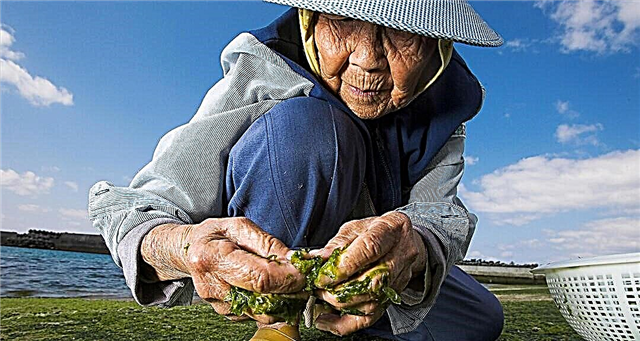 Rules of longevity
Rules of longevity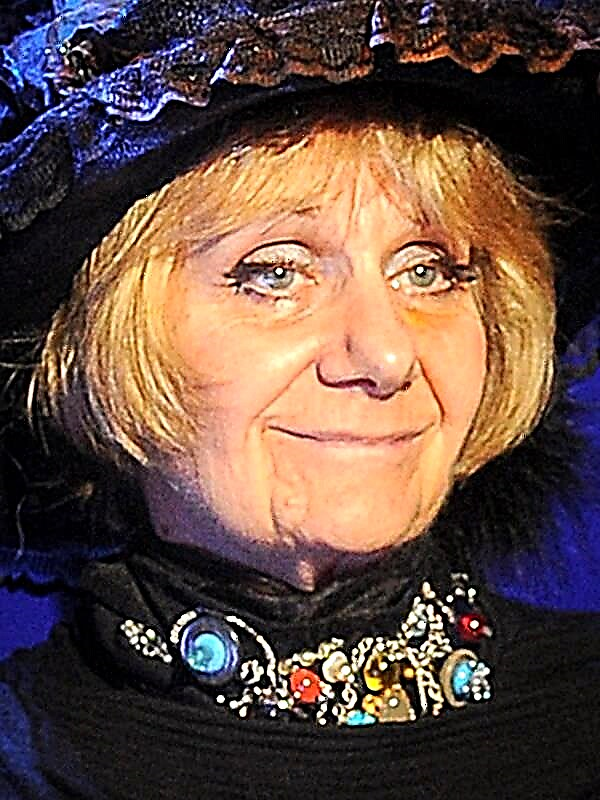
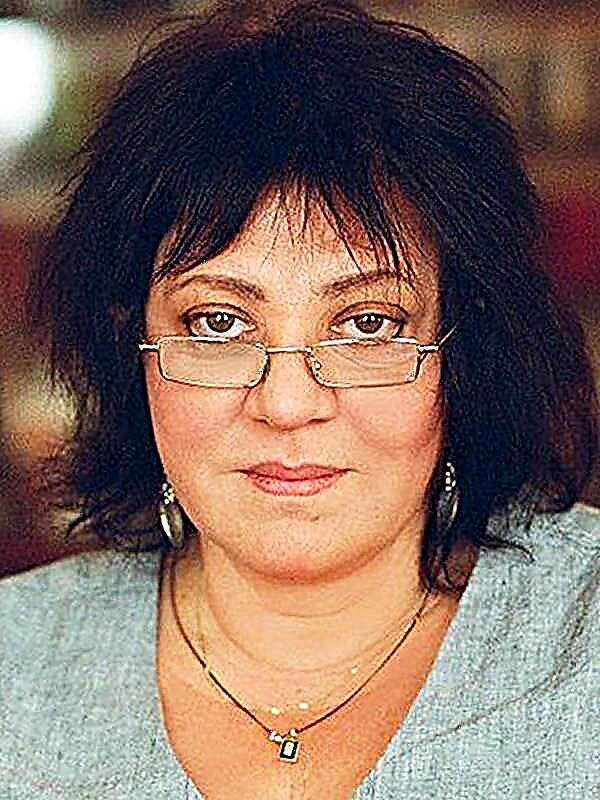

 Pyramid principle
Pyramid principle